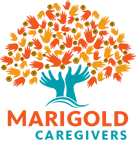Image source: Zoonar.com
When a person has Alzheimer’s Disease or Dementia, it is most often the short-term memory that is affected first. They are able to recall memories from long ago, which can make reminiscence therapy very effective in bringing joy to this group of seniors.
The idea behind reminiscence therapy is to help seniors feel valued, loved and content. Even if they can’t recall a lot of recent memories, they can often experience joy when talking about memories from years past. While there is no cure for dementia, you can help slow its progression.
5 reminiscence therapy activities:
Memories can be associated with specific parts of the brain, so doing the following activities can help stimulate brain function. Get creative!
- Listen together to music they love.
Music is a powerful tool to help stimulate good memories! It can bring back fond memories associated with that music, which can stimulate brain activity. Music has a way of letting your senior open up in ways that nothing else can do!
You can take this one step farther by playing the songs on simple instruments that get the senior involved. Things like shakers, tambourines, or even a toy guitar can be helpful and fun when working on reminiscence therapy.
- Go through old picture albums or memory boxes.
Going through a treasure chest or old photo albums can be a wonderful way to stimulate good memories. Even if some of the memories are sad, it’s still good to allow your senior to feel these emotions so they can stimulate brain activity. They might not remember clearly, but seeing pictures may help jar their memory so they can tell stories to you as you reminisce.
- Cook favorite foods or do other activities that bring back certain smells.
Smells are heavily associated with memories, so try cooking a favorite meal that reminds them of the things mom or grandma used to make. Perhaps they have fond memories of being by the beach during holidays—you could use air fresheners that smell like the ocean.
- Stimulate their sense of taste.
This goes back to cooking but tastes can be very stimulating to memories. If your senior loved certain foods, then try making that food often. If they are able, they may even be able to tell you how to make the dish or which spices are used in it. Take lots of pictures of them cooking with you so you can show them later!
Maybe they used to make a special dish for holiday celebrations – you could make it for them and reminisce while eating together. Or maybe you could recreate a favorite snack they made for you as a treat when you were young.
- Try doing crafts that involve using your hands.
The sense of touch is a very powerful tool in stimulating memories! Even if they don’t have the dexterity to help, allow them to direct while you do crafts. Ask them to tell you each step and talk through the memories of when they did this activity themselves.
Finally, involve them by thinking back to your favorite memories with them! Cooking or doing activities that you hold dear to your heart is wonderful reminiscence therapy! You might feel like you are losing the loved one you have always known, but that doesn’t have to be the case.
Always remember that long-term memory is rarely affected by dementia, so don’t hesitate to ask your senior loved one to tell you lots of stories from years gone by. Not only will you spend quality time that you cherish forever, but you will also help them recover by using the parts of their brain that are most affected!
Don’t be afraid of dementia or Alzheimer’s Disease—it can be managed. Your loved one is still in there, so don’t hesitate to help pull them out of that memory gap. You’ll find it’s more rewarding than you might think!
Read more articles on eldercare:
Signs That Your Elderly Loved One Needs Professional Care
Marigold Caregivers provides home care for seniors. Give us a call at +65 9109 1965.
Disclaimer: The words and other content provided in this blog, and in any linked materials, are not intended and should bot be construed as medical advice. If the reader or any other person has a medical concern, he or she should consult with an appropriately-licenced physician or other healthcare workers.
Never disregard professional medical advice or delay in seeking it because of something you have read on this blog or in any linked materials.

